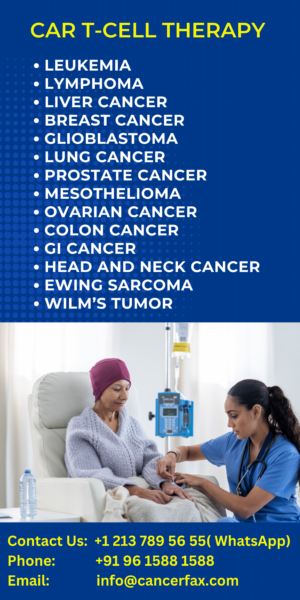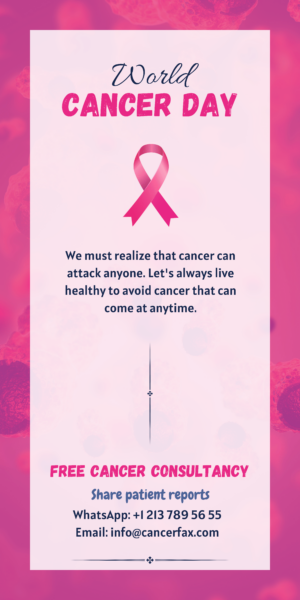Chronic lymphocytic leukemia (CLL)
What is chronic lymphocytic leukaemia (CLL)?
The most prevalent leukaemia in adults is chronic lymphocytic leukaemia (CLL). It’s a sort of cancer that begins in the cells of the bone marrow that become certain white blood cells (called lymphocytes). The cancer cells (leukaemia) begin in the bone marrow and subsequently spread throughout the body.
The leukaemia cells in CLL often grow slowly. Many people go years without experiencing any symptoms. However, the cells move to other regions of the body over time, including the lymph nodes, liver, and spleen.
What is lymphocytic leukemias?
Depending on which bone marrow cells the malignancy develops in, leukaemia is classified as myeloid or lymphocytic.
Lymphocytic leukemias (also called lymphoid or lymphoblastic leukemias) begin in lymphocyte precursor cells. Lymphomas are malignancies that begin in those cells as well. The fundamental distinction between lymphocytic leukemias and lymphomas is that cancer cells in leukaemia are mostly found in the bone marrow and blood, whereas cancer cells in lymphoma are mostly found in lymph nodes and other organs.
Types of CLL
- One kind of CLL grows very slowly. So it may take a long time before the patient needs treatment.
- The other kind of CLL grows faster and is a more serious disease.
These two forms of leukaemia cells look similar, but lab testing can determine the difference. The tests check for ZAP-70 and CD38 proteins. When these proteins are present in low concentrations in CLL cells, the leukaemia grows more slowly and has better long-term consequences.
Symptoms of chronic lymphocytic leukemia
Many people with chronic lymphocytic leukemia have no symptoms at first. Signs and symptoms might develop as the cancer progresses. They might include:
- Enlarged, but painless, lymph nodes
- Fatigue
- Fever
- Pain in the upper left portion of the abdomen, which may be caused by an enlarged spleen
- Night sweats
- Weight loss
- Frequent infections
Diagnosis of chronic lymphocytic leukemia
Blood tests that are used to diagnose chronic lymphocytic leukaemia include:
Blood count: The quantity of lymphocytes in a blood sample can be counted using a complete blood count. B cells, a kind of lymphocyte, in large numbers may indicate chronic lymphocytic leukaemia.
Type of lymphocytes: Flow cytometry, also known as immunophenotyping, is a test that determines whether an increase in lymphocytes is caused by chronic lymphocytic leukaemia, another blood illness, or your body’s response to another activity, such as infection.
If chronic lymphocytic leukaemia is present, flow cytometry can be used to look for features in the leukaemia cells that can help predict how aggressive they are.
Genetic alterations: Fluorescence in situ hybridization (FISH) is a diagnostic that looks for abnormalities in the chromosomes of malignant cells. Doctors may use this information to assist decide your prognosis and treatment options.
In some cases, your doctor may order additional tests and procedures to aid in diagnosis, such as:
- Tests of your leukemia cells that look for characteristics that could affect your prognosis
- Bone marrow biopsy and aspiration
- Imaging tests, such as computerized tomography (CT) and positron emission tomography (PET)
Treatment of chronic lymphocytic leukemia
The stage of your malignancy, whether you’re experiencing signs and symptoms, your overall health, and your preferences all influence your treatment options for chronic lymphocytic leukaemia.
It’s possible that treatment won’t be required immediately away.
You may not need therapy right away if your chronic lymphocytic leukaemia does not create symptoms or show signs of worsening. Early treatment for persons with early-stage chronic lymphocytic leukaemia did not extend their lives, according to studies.
Doctors carefully monitor your status and save treatment for when your leukaemia worsens, rather than putting you through the potential side effects and difficulties of treatment before you need it.
Your doctor will devise a routine for you to follow. To keep an eye on your condition, you should see your doctor and get your blood checked every few months.
Treatments for advanced and intermediate stages
If your doctor determines that you need therapy for chronic lymphocytic leukaemia, you may have the following options:
Chemotherapy: Chemotherapy is a medicine that destroys rapidly multiplying cells, such as cancer cells. Chemotherapy treatments can either be given intravenously or as pills. Your doctor may employ a single chemotherapy treatment or a mix of drugs, depending on your situation.
Targeted therapy: Targeted medication treatments are designed to target specific abnormalities found in cancer cells. Targeted medication treatments can kill cancer cells by inhibiting these aberrations.
Immunotherapy: Immunotherapy is a type of cancer treatment that makes use of your immune system. Because cancer cells create proteins that assist them hide from immune system cells, your body’s disease-fighting immune system may not attack your cancer. Immunotherapy works by interfering with the immune system’s natural processes.
Transplantation of bone marrow. Strong chemotherapy drugs are used in a bone marrow transplant, also known as a stem cell transplant, to kill the stem cells in your bone marrow that are producing diseased lymphocytes. After that, healthy adult blood stem cells from a donor are infused into your bloodstream, where they travel to your bone marrow and start producing healthy blood cells.
Bone marrow transplantation has become less prevalent in the treatment of chronic lymphocytic leukaemia as new and more effective medication combinations have been developed. In some cases, however, this may be a viable therapy choice.
Treatments can be used alone or in combination.
- Comments Closed
- September 13th, 2021



Latest Posts
- Targeting FGFR4 and CD276 with CAR T-cells demonstrates a strong antitumor impact against children rhabdomyosarcoma
- Disruption of CD5 on CAR T Cells Enhances the Effectiveness of Anti-Tumor Treatment
- The future of gene therapy: What to expect in the next decade?
- Unlocking the genetic code: The future of gene therapy for genetic disorders
- CRISPR and gene editing: Revolutionizing gene therapy
- Aids cancer (4)
- Anal cancer (8)
- Anemia (5)
- Appendix cancer (3)
- Basal cell carcinoma (1)
- Bile duct cancer (7)
- Bladder cancer (10)
- Blog (3)
- Blood cancer (56)
- Bone cancer (11)
- Bone marrow transplant (43)
- Brain Tumor (48)
- Breast Cancer (48)
- Cancer (787)
- Cancer surgery (234)
- Cancer treatment in South Korea (341)
- cancer treatment in Thailand (331)
- Cancer treatment in Turkey (329)
- Cancer treatment in USA (328)
- CAR NK-Cell therapy (12)
- CAR T-Cell therapy (95)
- Cervical cancer (41)
- Chemotherapy (36)
- Childhood cancer (2)
- Cholangiocarcinoma (3)
- Clinical trials (5)
- Colon cancer (95)
- Coronavirus (1)
- Cosmetic surgery (7)
- COVID19 (2)
- Doctor (37)
- Drugs (19)
- Endometrial cancer (9)
- Esophageal cancer (15)
- Eye cancer (9)
- Gall bladder cancer (3)
- Gastric cancer (22)
- Glioblastoma (1)
- Gynecological cancer (2)
- Head and neck cancer (20)
- Hematological Disorders (50)
- Hospital (47)
- Immunotherapy (25)
- Kidney cancer (10)
- Laryngeal cancer (1)
- Leukemia (44)
- Liver cancer (94)
- Lung cancer (65)
- Lymphoma (44)
- MDS (2)
- Medical tourism (71)
- Medical visa (11)
- Melanoma (8)
- Merkel cell carcinoma (1)
- Mesothelioma (4)
- Myeloma (22)
- Oral cancer (13)
- Ovarian Cancer (13)
- Pancreatic cancer (39)
- Penile cancer (1)
- Procedure (19)
- Prostrate cancer (10)
- Proton therapy (26)
- Radiotherapy (35)
- Rectal cancer (57)
- Sarcoma (11)
- Skin Cancer (13)
- Spine surgery (8)
- Stomach cancer (40)
- Surgery (54)
- Systemic mastocytosis (1)
- T Cell immunotherapy (2)
- T-Cell therapy (7)
- Testicular cancer (5)
- Thoracic surgery (2)
- Throat cancer (6)
- Thyroid Cancer (14)
- Treatment (746)
- Treatment in China (646)
- Treatment in India (684)
- Treatment in Israel (586)
- Treatment in Malaysia (360)
- Treatment in Singapore (255)
- Treatment in South Korea (238)
- Treatment in Thailand (233)
- Treatment in Turkey (233)
- Uncategorized (39)
- Urethral cancer (9)
- Urosurgery (14)
- Uterine cancer (3)
- Vaginal cancer (6)
- Vascular cancer (5)
- Vulvar cancer (1)






Privacy Overview